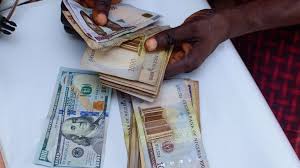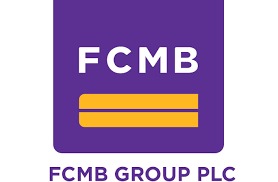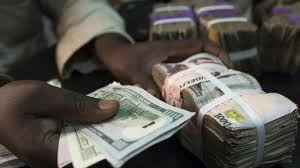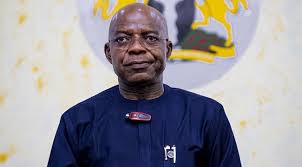At the backdrop of sharp rises in cost of procuring products and interest rates in banks petroleum marketers have recorded massive jump in bank borrowing and cost of doing business.
findings from the financial records of key operators in the sector show they borrowed over N3.0 trillion in the nine months ended September 2024, 9M’24, up by 76.5 % from N1.7 trillion in the corresponding period 2023, 9M’23.
The Central Bank of Nigeria, CBN, Monetary Policy Rate (MPR) which is the benchmark lending rate for banks, went up from 18.75% in 2023 to 27.50% in 2024, a rate considered too high and disincentive to businesses.
However, the sharp and sudden rises in petroleum product prices forced the oil marketing companies to resort to bank borrowings to meet up with product procurements.
Consequently, the companies recorded high growth in finance cost, rising to N156.9billion in 9M’24, representing 78.9% increase from N116.083 billion in 9M’23.
But the companies still recorded significant profit margins on the back of huge rise in turnover driven by higher pump prices of petrol across the country, indicating that they effectively transferred the high cost of borrowings to the consumers.
The combined firms’ profit before tax, PBT grew by 44.5% to N420.805 billion in 9M’24 from N280.805 billion in 9M’23, while turnover grew by 57.9% to N5.296 trillion from N3.355 trillion in 9M’23, surpassing inflation at 34.8%.
The Central Bank of Nigeria, CBN, Monetary Policy Rate (MPR) which is the benchmark lending rate for banks, went up from 18.75% in 2023 to 27.50% in 2024, a rate considered too high and disincentive to businesses.
However, the sharp and sudden rises in petroleum product prices forced the oil marketing companies to resort to bank borrowings to meet up with product procurements.
Consequently, the companies recorded high growth in finance cost, rising to N156.9billion in 9M’24, representing 78.9% increase from N116.083 billion in 9M’23.
But the companies still recorded significant profit margins on the back of huge rise in turnover driven by higher pump prices of petrol across the country, indicating that they effectively transferred the high cost of borrowings to the consumers.
The combined firms’ profit before tax, PBT grew by 44.5% to N420.805 billion in 9M’24 from N280.805 billion in 9M’23, while turnover grew by 57.9% to N5.296 trillion from N3.355 trillion in 9M’23, surpassing inflation at 34.8%.
The companies covered by Financial Vanguard findings includes Oando, Conoil, Eterna Plc, MRS Oil,Total Energies and Aradel Plc.
Explaining the market situation, industry and financial analysts said the elasticity of demand for petroleum products is quite high hence they were able to transfer their costs to consumers.
They also said petroleum product procurement cost rose sharply since removal of subsidy in 2023 and
They also said petroleum product procurement cost rose sharply since removal of subsidy in 2023 and further escalated in 2024 and this entails very huge working capital outlay which many operators could not afford. Hence they resorted to bank credit.
According to them, the increase in the price of products also means they will require more capital to maintain and grow their volumes which is the cause of the increase in borrowing seen in their figures.
The experts noted that the final removal of Nigeria’s longstanding fuel subsidy marked the beginning of a new economic reality, significantly altering the country’s oil sector and leading to sharp rises in fuel prices which spurred inflation to 34.8 per cent in December 2024, the highest in 30 years.
They noted that the government was able to follow through with the deregulation of the downstream oil sector, but added that it had been very costly to businesses and the citizens.
On the outlook, they said expectation of impressive performance and increased dividend from the petroleum sector is high amongst investors. This, according to them, “is because of the encouraging trend since beginning of last year. Since 3rd quarter of 2024, distribution of petroleum products has nearly normalized meaning improving income for operators. Consequently, 2025 is even expected to be a better year for the industry in terms of return.”
Companies’ performance
Financial Vanguard’s analysis from the data gathered from the NGX showed that in terms of borrowing, Oando Plc led the chart as its borrowing grew by 238% to N2.773 trillion in 9M’24 from N818.3 billion in 9M’23. It was followed by Aradel Plc , which soared by 55.6% to N96.399 billion from N61.971 billion. Total Energies recorded N100.505 billion, showing an increase by 18.9% from N84.500 billion, while Eterna Plc borrowing grew marginally by 0.01% to N42.691 billion from N42.686 billion. Conoil reduced its borrowing by 61.7% to N12.272 billion from N32.005 billion. MRS did not borrow during the period under review after
taking a loan of N1.411 billion in the 9M’23.
Finance cost
Eterna Plc led in the finance cost chart rising by 477.7% to N5.084 billion in 9M’24 from N887 million in 9M’23. It was followed by Conoil whose finance cost grew by 105.5% to N2.476 billion from N1.303 billion.
Oando’s finance cost went up by 70.1% to N131.129 billion from N77.072 billion. Aradel finance surged by 38.3% to N7.072 billion from N5.114 billion, while Total Energies net finance cost grew by 23.6% to N11.041 billion from N3.340 billion while MRS Oil recorded the least finance cost of about N100 million rising by 5.3% from N95.0 million.
Cost of sales
The combined firms’ cost of sales grew by 58.26% to N5.153 trillion from N3.256 trillion in 9M’23. Aradel led the chart rising by 231% to N261.213 billion from N78.81 billion, followed by MRS whose cost of sales increased by 155.6% to N229.863 billion from N89.946 billion in 9M’23. Total Energies recorded 91.1% growth to N700.205 billion from N366.456 billion in 9M’23. Conoil’s cost of sales rose by 85.3 % to N223.587 billion from N120.650 billion. Eterna’s cost of sales went up by 85.2% to N203.625 billion from N109.925, while Oando recorded N2.995 trillion at a growth rate of 32.7% from N2.257 trillion in 9M’23.
Profits
Aradel led the PBT chart as it grew by 186% to N321.6 billion from N112.163 billion. It was followed by Total Energies growing by 151.8% to N41.850 billion. MRS Oil’s PBT surged by 88.9% to N9.374 billion from
N4.958 billion. Conoil recorded 37.9% growth in PBT to N15.242 billion from N11.053 billion in 9M’23, followed by Oando whose PBT grew by 13.4% to N31.135 billion. However, Eterna’s PBT dropped by 51.% to N1.679 billion from N3.428 billion.
Turnover
Aradel led the turnover chart growing by 162.7% to N581 billion from 221.1 billion. It was followed by MRS Oil whose turnover increased by 144.1% to N248.7 billion from 101.877 billion. Eterna occupied third position posting N203.625 billion, representing 89.6% growth from N109.9 billion in 9M’23. Total Energies grew its PBT by 88% to N793.9 billion from N422.576 billion, while Conoil recorded 80.7% growth in turnover to N249.139 billion from N137.888 billion. Oando grew its turnover by 35.8% to N3.189 trillion in 9M’24 from N2.349 trillion in 9M’23.
Analysts/Economy experts comment
Commenting on the industry development, Analyst and Executive Vice Chairman at Highcap Securities Limited, David Adonri, said: “The growth in the profit made by petroleum companies are fallouts from the deregulation of the Oil/Gas sector and consequent colossal increase in price of petroleum products. Their cost also increased astronomically because of higher cost of sales, high finance cost and impact of the general rise in inflation.
“The elasticity of demand for petroleum products is quite high hence they were able to transfer their costs to consumers. Secondly, through several turnovers of their capital employed, they were able to massively outperform inflation”.
On the huge borrowing in the sector, he said: “Petroleum business requires very huge working capital outlay which many operators cannot afford hence the resort to bank credit. With escalation in cost of sales and operational costs, borrowing and attendant finance cost increased. Their healthy returns after deduction of finance cost means that their short term debt servicing capacity is strong.”
While commenting on the outlook in 2025, Adonri said: “Expectation of impressive performance and increased dividends from the petroleum sector is high amongst investors. This is because of the encouraging trend since beginning of last year. Since 3rd quarter of 2024, distribution of petroleum products has nearly normalized meaning improving income for operators. Consequently, 2025 is even expected to be a better year for the industry in terms of return.”
The Chief Operating Officer of InvestData Consulting Limited, Mr Ambrose Omordion, attributed the increase in revenue of these companies to higher-margin oil products, stressing that the ease of movement also contributed to revenue and profit.
According to him, “These companies reported an increase in revenue due to higher margin in products they sold this year. The reforms in the oil & gas sector have impacted on revenue that translates into profit. Also, last year witnessed a significant petrol price hike, which put a strain on the economy. The price hike was initially followed by petrol scarcity, further exacerbating the economic hardship faced by Nigerians. Despite these challenges, the country’s oil sector recorded appreciable profit and revenue”.
Responding to the remarkable performance of the oil & gas / petroleum marketing sector, former President of the Chartered Institute of Stockbrokers, CIS and Managing Director/ Chief Executive Officer of Arthur Stevens Asset Management Limited, Olatunde Amolegbe, said: “It’s clear that the decision to deregulate the
downstream energy sector has had a profound impact on the performance of companies operating in that sector.
Firstly, since prices are no longer regulated players can now set their own pump price relative to their cost, operating expenses, margins and other parameters. It therefore means that they are able to squeeze more profitability from their businesses.
Secondly the increase in the price of products also means they will require more capital to maintain and grow their volumes which is the cause of the increase borrowing seen in their figures
Thirdly they also benefit from sourcing products locally with the coming on stream of Dangote Refineries which reduces their FX exposure/ risks and also improves product availability
I think the profit spike they’ve seen this year has to do with this fundamental changes in the functioning of the sector. Its likely that margins will stabilize as the industry settles into its new reality and intense competition sets in.”
In his own comment, Dr Muda Yusuf, former Director General, Lagos Chamber of Commerce & Industry,LCCI and Managing Director, Centre for the Promotion of Private Enterprise, CPPE, said: “For the oil marketing companies, one of the things that they have craved for over the years is this complete deregulation of the downstream sector, there have been several attempts by various administrations, which had not worked because the political will to follow it through was not there.
“So for this administration, I think that is one credit we need to give them. They were able to follow through with the deregulation of the downstream oil sector, although it had been very costly to businesses, to
citizens, and even politically costly even to the government.
“So that is the reform that the downstream sector operators in the oil and gas have been clamoring for, and this includes in the marketing. So the policy environment is now much better than what they used to have. So that is one major thing that I think has contributed to this growth, you know, there’s a lot more confidence now to invest in that sector, and then we are likely to even see more growth in the sector, particularly, even among the majors and even other players.
The petroleum firms are one of the major beneficiaries of this reform. So that is what is playing out”.
Commenting on the future outlook, Yusuf said: “I think we should also not be carried away by nominal figures, you know, the cost of a tanker of Premium
Motor Spirit, PMS, today is almost three times what it used to be. So these big numbers, by the time you look at the volume of business it can do. It’s not as if it is as big as you look it, because we need to discount these figures for inflation, for the high cost of procurement of products and all of that, and even also high cost of finance and those things. So we should also be careful not to fall into the risk of some kind of monetary illusion. Because, you know, N1 million today is just about may be N100,000 a year ago, you know, so you have to take that into account. If we discount for inflation, you see that the growth is not really as phenomenal, as its been projected by the numbers.
“So we need to watch out for that. But generally, I think the reform process has actually benefited the sector, this segment of the petroleum industry, significantly”.
Commenting as well, Tajudeen Olayinka, Investment Banker & Stockbroker said: “I think the best way to look at performance of companies in the oil & gas/petroleum marketing sector is to consider how recent adjustment policies of government continue to shape consumption and production in the sector. There is no doubt that removal of petroleum subsidy impacted negatively on consumption of product, given that purchasing power has not improved significantly to sustain old consumption level and habit. It is therefore out of place to refer to 66.1% jump in revenue or 44.5% jump in profit before tax as anything superficial. In a period of high inflation, businesses tend to adjust prices to accommodate rising cost of inputs to be able to stay afloat in the short-run. That is what those figures, especially, profit before tax has demonstrated.
“It is just a jump in nominal value, given high inflationary pressure that we have. The actual sales volume could have been much lower than the performance in 2023.
“ That is the tradition in that sector. Working capital is largely funded with debt, and because they trade in necessary goods, they are able to recover cost significantly, to the extent competition could permit.
“ I think performance in 2025 will be driven largely by moderation in inflation rate. Given that government is targeting moderation in inflation, it is very likely that performance in 2025 will surpass what we have seen in 2024”.








